From here:
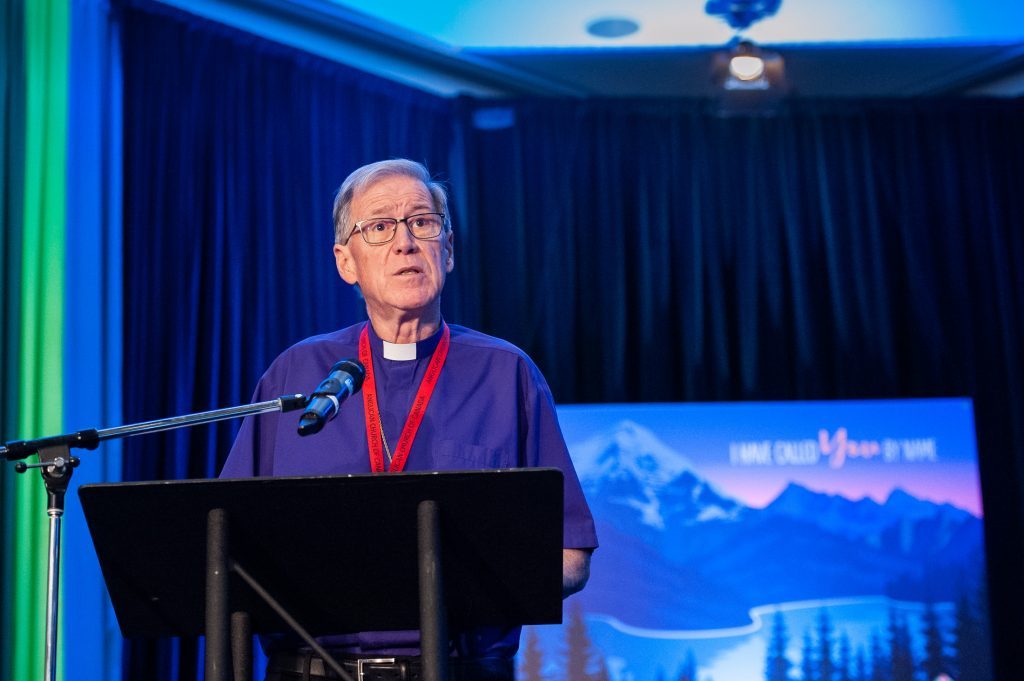 In an exercise intended to produce more compassionate discussions than those that sometimes prevailed during marriage canon discussion in 2016, members of the 2019 General Synod spent almost the entire afternoon of the gathering’s first official day of business hearing about and practicing ways of speaking and listening respectfully to one another.
In an exercise intended to produce more compassionate discussions than those that sometimes prevailed during marriage canon discussion in 2016, members of the 2019 General Synod spent almost the entire afternoon of the gathering’s first official day of business hearing about and practicing ways of speaking and listening respectfully to one another.
An organisation that spends an entire afternoon discussing how to discuss things doesn’t stand much of a chance of getting to the heart of the matter to be discussed. It is like Kierkegaard’s view of ‘reflection’ as opposed to ‘immediacy’, where you have an idea about something and indulge in endless conversations about the idea, instead of dealing with the thing itself. Will anyone be allowed to express any strong reasons to oppose same-sex marriage or will they be squashed as hurtful or bullying. We’ll see.
From 1:30 p.m. until close to 5 p.m. on July 11, with one break, Lynne McNaughton, bishop of the diocese of Kootenay, and priest and psychologist Canon Martin Brokenleg led a session on “being a synod,” discussing the importance of living out Christian love during debates about potentially contentious issues, and having synod members practice respectful listening and talking skills in table groups.
The Anglican version of “Christian love” has devolved into mushy sentiment centred around not hurting anyone’s feelings.
Dean Peter Wall, chair of the General Synod planning committee, said the idea for the exercise arose out of a great deal of talking and praying committee members had done, in the hope of creating a “listening, learning atmosphere” at the 2019 synod, and to help it be “both a community and a body.”
The alleged “listening, learning atmosphere” is a hoax: no one was willing to listen to ex-homosexuals and ex-lesbians from the Zacchaeus Fellowship in prior synods and no one will be in this synod.
Brokenleg was to have co-led the session with Archbishop Melissa Skelton, metropolitan of the ecclesiastical province of British Columbia and Yukon and diocesan bishop of New Westminster, but Skelton was ill and unable to attend General Synod on Thursday. McNaughton, another member of the General Synod planning committee who, Wall said, was closely involved in developing the exercise, took her place Thursday.
McNaughton said she hoped the exercise would allow members of synod to be their “authentic selves” in their discussions while at the same time making room “for others with different authentic selves and perspectives.”
What on earth are “authentic selves”? How did non-authentic selves get nominated as delegates? Have synod delegates been the victim of alien body snatchers and become Pod People, duplicates in every respect except in their ability to maintain a connection with authenticity? It would explain the behaviour of many of the clergy.
Listening and speaking well through difficult discussions, she said, is a way to “be as Christ to one another, to love one another as Christ has loved us,” and by doing this, Christians can be an example to the world.
“We are called to be a witness to a world that is hungry for civility, parched for compassion,” she said. “The world is watching how we treat each other in the midst of difference, and the world is waiting to be inspired.”
The world is hungry for truth not sickly, bogus, anodyne civility.
Like this:
Like Loading...

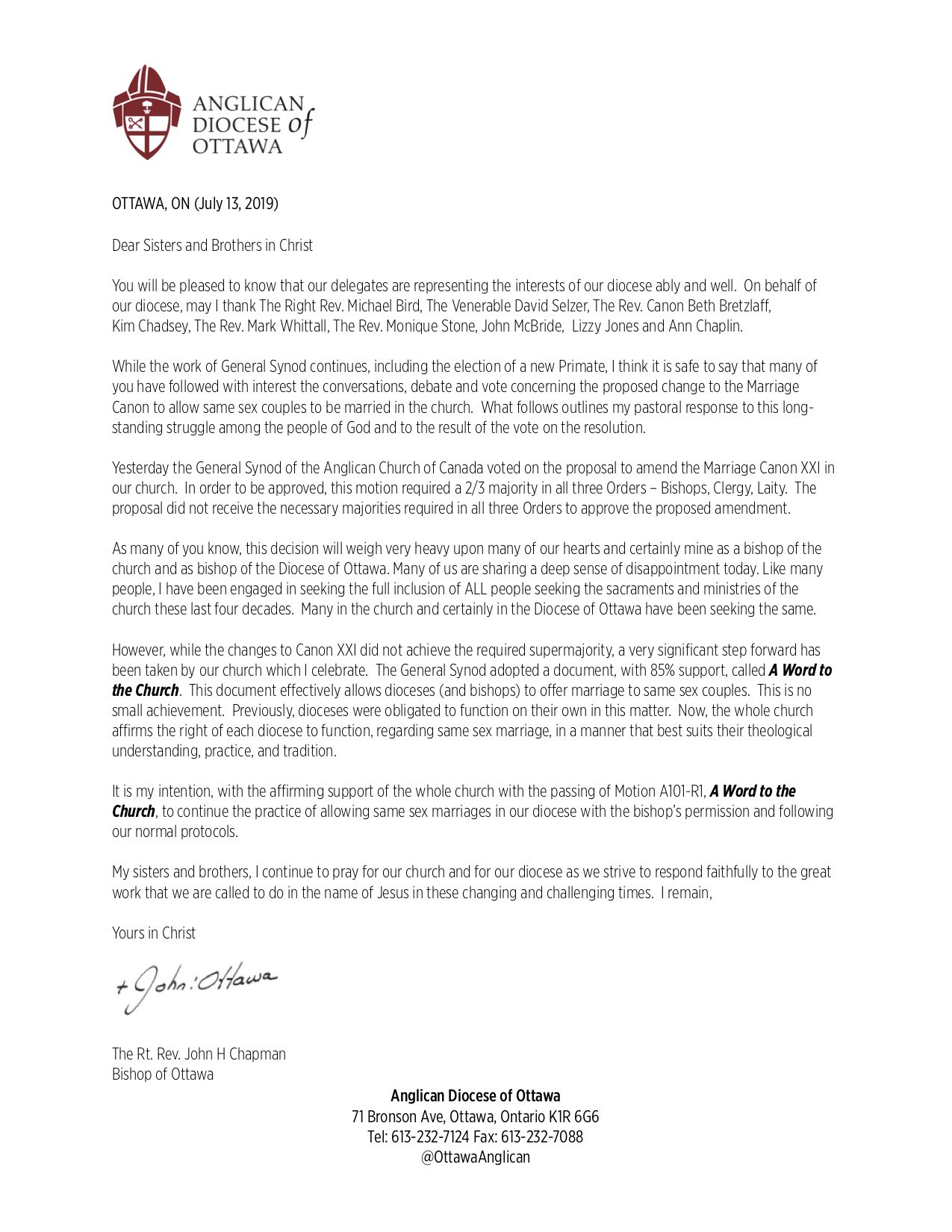

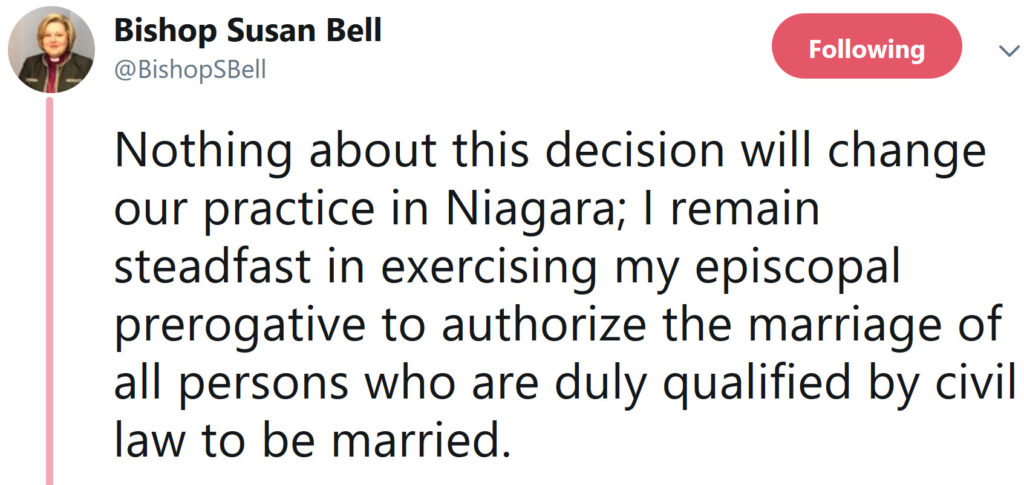
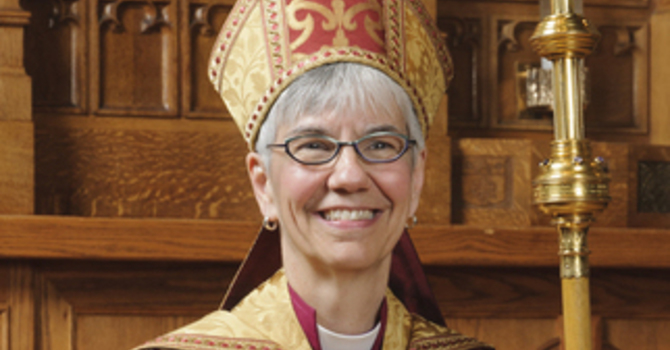

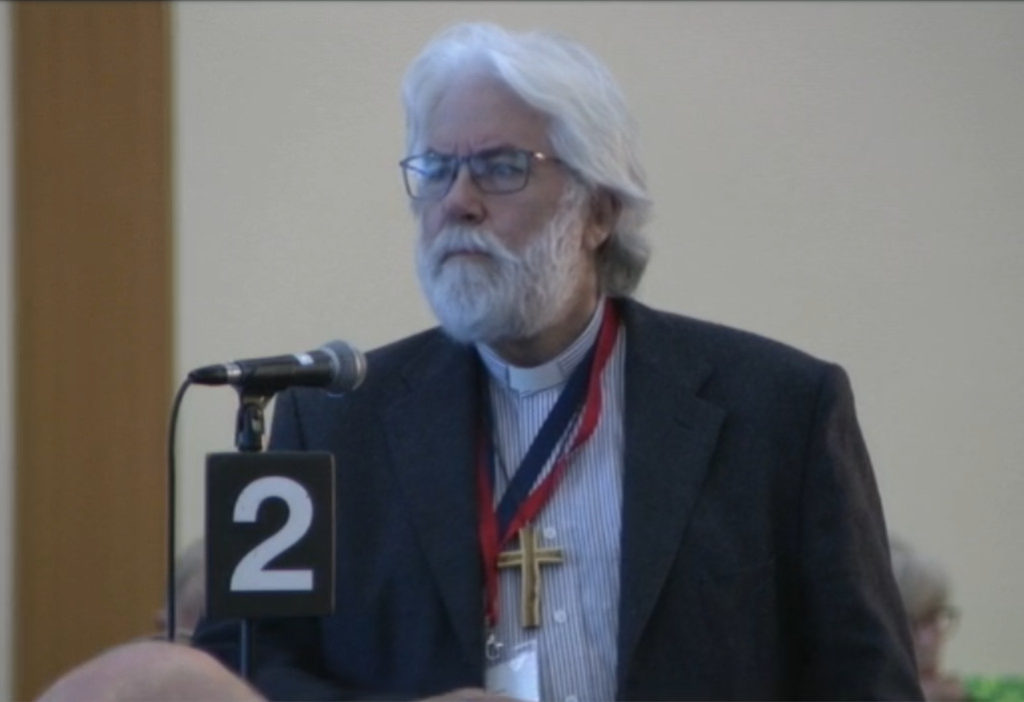 I’m watching the live stream of GS2019. The discussion is about the change to the Marriage Canon. A motion has just been made to close debate. That means that Bishop David Parsons will not be able to express his views; apparently something similar happened in 2016. I wish I had recorded it, but the gist of it was that, in spite of all the talk about respect for all points of view, not much respect was being shown to the bishop – who, of course, disagrees with the motion.
I’m watching the live stream of GS2019. The discussion is about the change to the Marriage Canon. A motion has just been made to close debate. That means that Bishop David Parsons will not be able to express his views; apparently something similar happened in 2016. I wish I had recorded it, but the gist of it was that, in spite of all the talk about respect for all points of view, not much respect was being shown to the bishop – who, of course, disagrees with the motion. In an exercise intended to produce more compassionate discussions than those that sometimes prevailed during marriage canon discussion in 2016, members of the 2019 General Synod spent almost the entire afternoon of the gathering’s first official day of business hearing about and practicing ways of speaking and listening respectfully to one another.
In an exercise intended to produce more compassionate discussions than those that sometimes prevailed during marriage canon discussion in 2016, members of the 2019 General Synod spent almost the entire afternoon of the gathering’s first official day of business hearing about and practicing ways of speaking and listening respectfully to one another.